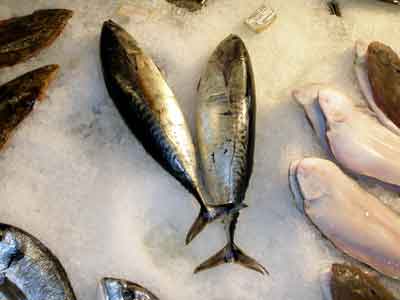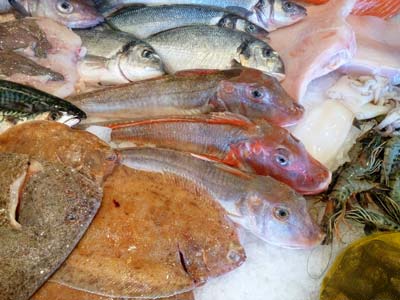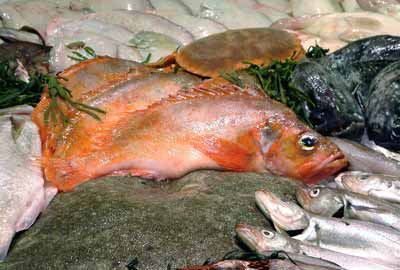
Little tunny. The little tunny is a handsome fish with black scribble patterns on its back. It has a robust, torpedo-shaped body built for powerful swimming and it has no swim bladder. The mouth is large, the lower jaw slightly protruding past the upper jaw. The flesh of the little tuna is darker and stronger tasting than that of the other large tunas. It is marketed fresh, dried, canned, smoked, or frozen. It is often caught on hook and line near reefs.

Red gurnard. Gurnards are strange-looking, scaly, spiky, bottom-feeding fish which use the three bottom rays of their pectoral fins to "feel" the sea bed. They have firm-textured white meat with a mild flavour. They are rich in protein, iodine and phosphorus. The red gurnard is the most attractive member of the family with pinkish-red colour and the finest flavour of the gurnards. They are all bony and tend to dryness so they are best served with a sauce. Small ones are excellent in soup. Red or grey mullet (US: striped mullet) can generally be subsituted for it, and are usually better.

Norway haddock. Redfish. Rosefish. A short, thick-bodied marine fish up to 25 cm (10 inches) long. It is found in the North Atlantic. It has an orange-red skin and delicately flavoured white flesh.